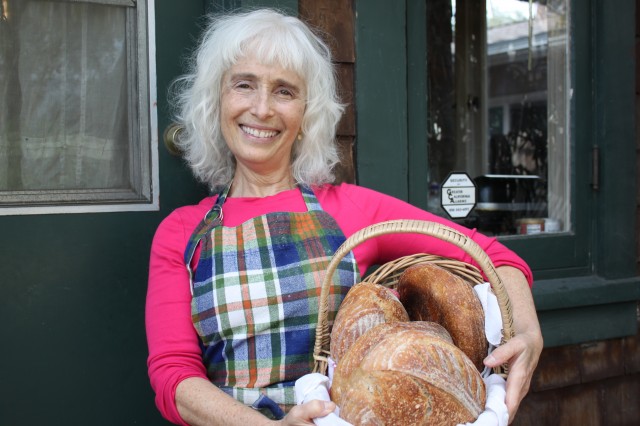
story
BE ADVISED: The Natural History Museum is not participating in SoCal Museums Free-for-All on Sunday, February 22.
BE ADVISED: The Natural History Museum is not participating in SoCal Museums Free-for-All on Sunday, February 22.
Rose + Rye | Kristine Jingozian
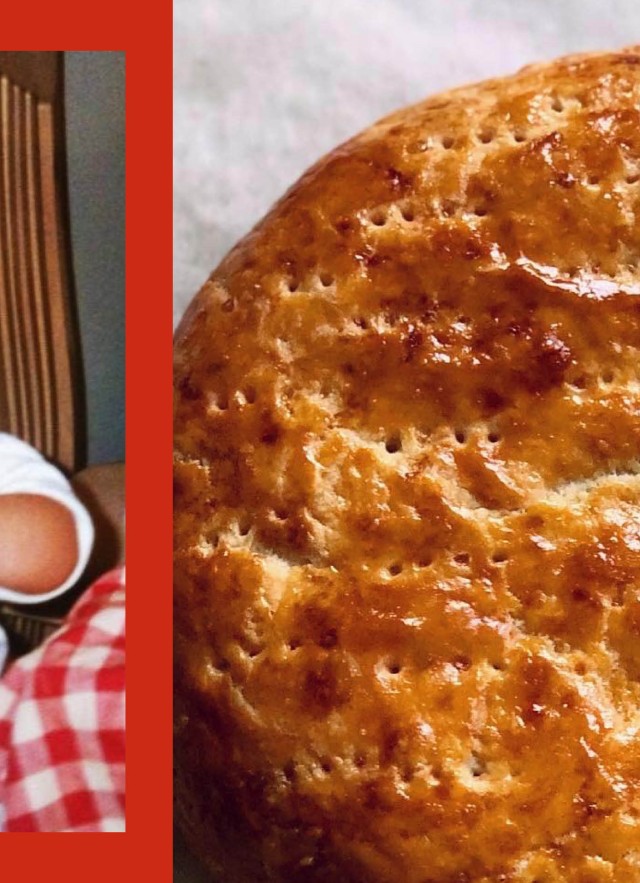
Rose + Rye is a self proclaimed diasporan bakery based in Granada Hills. Founder and Head Baker, Kristine Jingozian has created a name for herself selling her Armenian pastries and breads. In an interview with Jingozian she shares how working with her grandmother in the kitchen ignited her passion for baking, upholds her family's legacy and resilience, and inspired big goals for Rose + Rye.
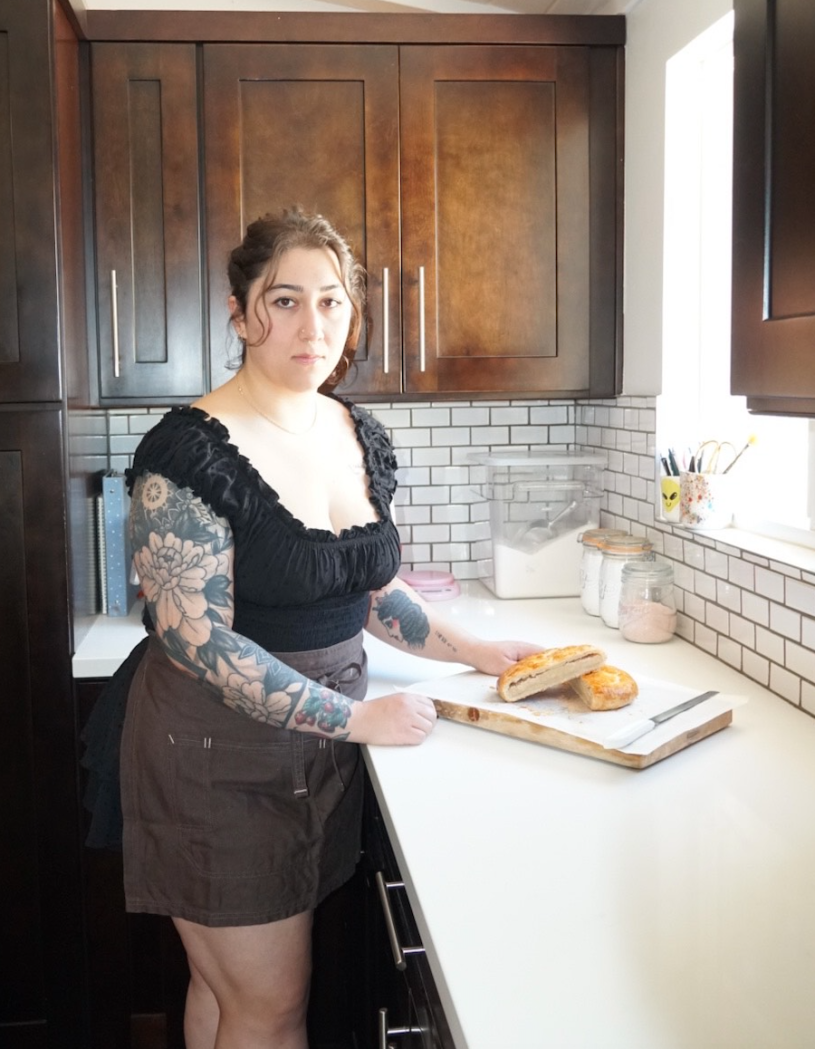
When I thought about it a little bit deeper, it's not Armenian baking that I do and it's not American baking that I do. It's diasporan baking that I do. That's what Rose + Rye is– it is a diasporan bakery.
Kristine Jingozian
My name is Kristine Jingozian, and I got my start baking professionally about six years ago, but I started cooking ten years ago– so I've been in the industry for quite a while. I always loved baking growing up and I [remember] when I was two and a half or three years old, my parents would get store bought gata from the local market. I would pull it out of its container and put peanut butter and jelly on it, sandwich two slices together and say, “Look, I made something for you guys, you want to try it?”. So I've always been interested in food– it's something that I have always felt very close to. I think part of that is also because I grew up with my grandma. She was always in the kitchen, always cooking. I used to go over to her house, and she would just be cooking, and I would just watch her. She would teach me things and some of the items that we sell at Rose + Rye are some of the things that my grandma's have taught me how to make. I have a natural affinity for cooking and baking, but it is also a part of my upbringing.
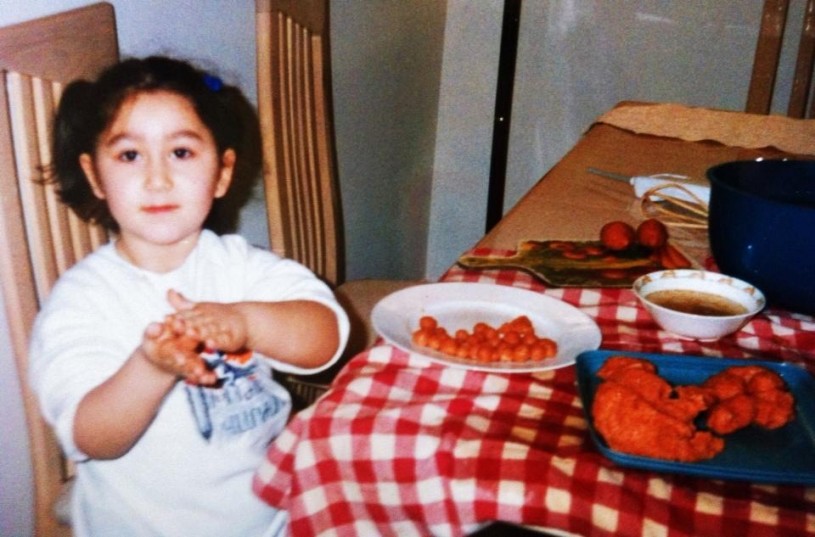
I'm Armenian and both my grandma's are Armenian, however, they're from different regions. They have different cultural backgrounds within Armenian culture because of the way that Armenia has been ransacked and divided. There has been a lot of hardship in that country. My maternal grandmother is from Iran– she's Armenian, from Iran, and then she went back to Armenia with her family. My paternal grandmother is Lebanese and Turkish Armenian– they went back to Armenia, after having been spread around the Middle East.
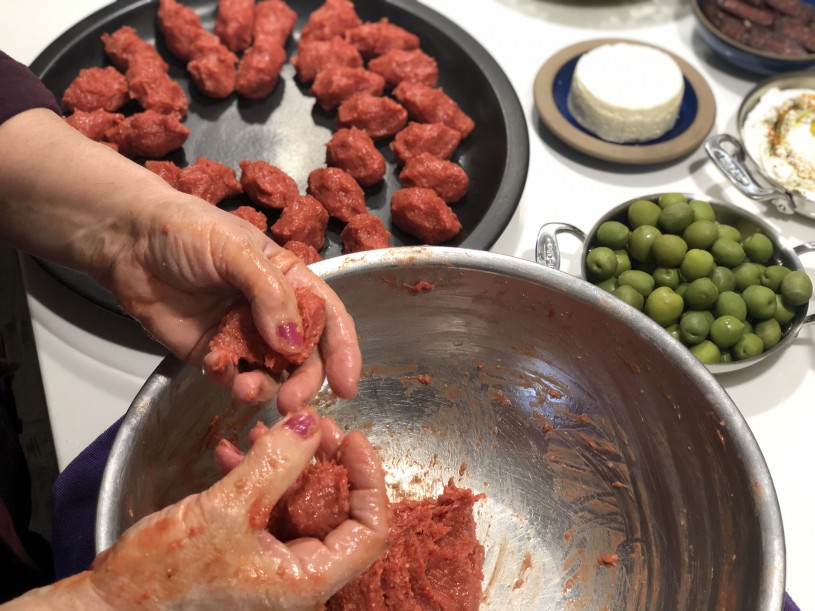
[My grandmother] is basically the reason why I bake what I bake and why my family does what we do with food. Prior to the pandemic, our company was a custom cake and pastry shop for special events like birthdays, weddings, and christenings– so big events. Obviously, with the pandemic, everything was canceled and we were losing a lot of business. So for a few months, we were thinking, “what do we do?” and “how are we going to keep baking and sustaining ourselves in our community?” I had the idea of making nazook. Nazook and gata are similar in certain regions of Armenia, and Armenians from certain regions will use the terms interchangeably. But gata’s characteristic feature is that it is a round bread and nazook is rolled into what looks like a rugelach.
Gata was something that was never missing from our kitchen growing up, as well as every relative's house that I would go to. Gata was on the coffee table or in the kitchen– they would have it somewhere in their house whether they've made it themselves or they bought it at the store. So it's an integral part of Armenian culture!
When I first started Rose + Rye last May (2021), I thought to myself– I’ll just make gata! Gata is like the chocolate chip cookie of Armenian baking. It's what you want when you need comfort and it's the thing that your grandma makes when she wants to comfort you. I figured that in these weird times we're in I'd like to make something that can put a smile on people's faces. From there, it just blossomed and it turned into Rose + Rye.
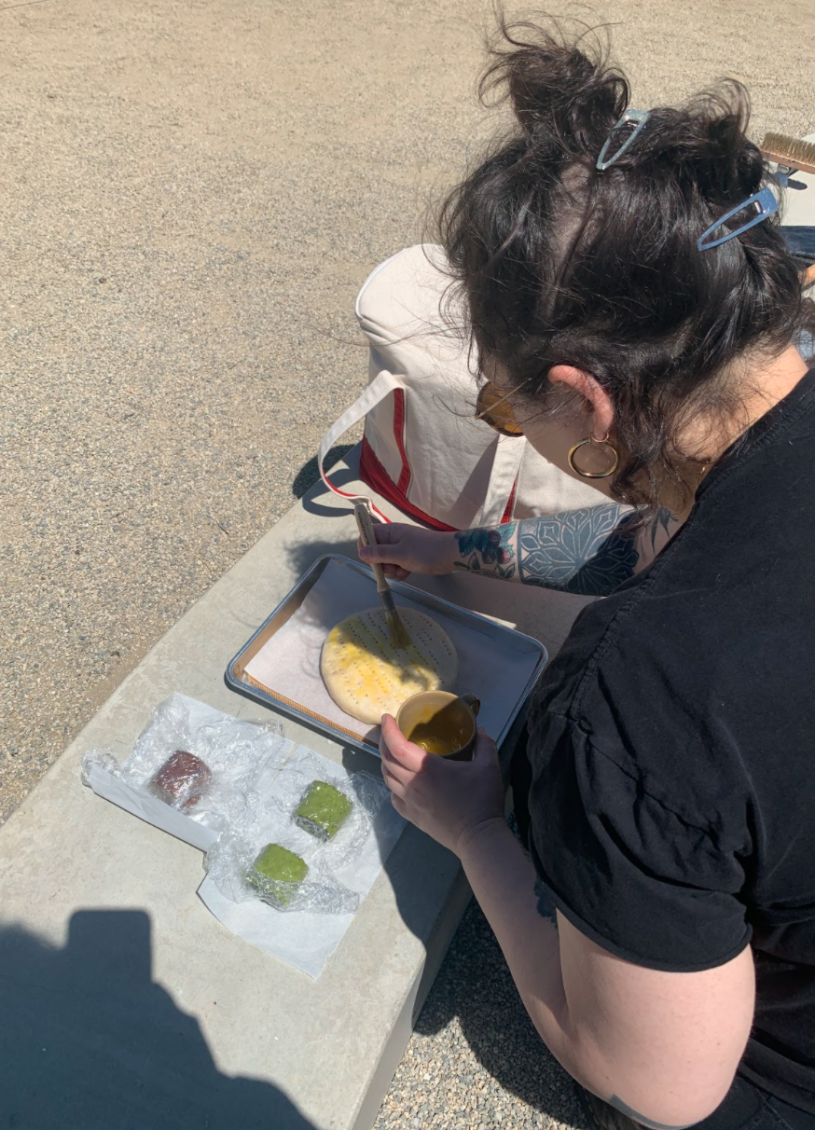
My family comes from everywhere in the Middle East– on my fathers side, his great, great grandfather was a survivor of the Armenian Genocide and his entire family was slaughtered. He was just a boy when their neighbor, a Turkish man, hid my dad's great, great grandfather in a ceramic crock. He put rice over him to hide him from the authorities and saved his life. Armenian people who are descendant from survivors of the genocide have similar stories. My parents are immigrants to this country, but we're very, very closely tied to our culture. It's a huge part of who we are and why we do what we do.
So when I thought about it a little bit deeper, I don’t do Armenian baking or American– I do diasporan baking. That is what Rose + Rye is– a diasporan bakery.
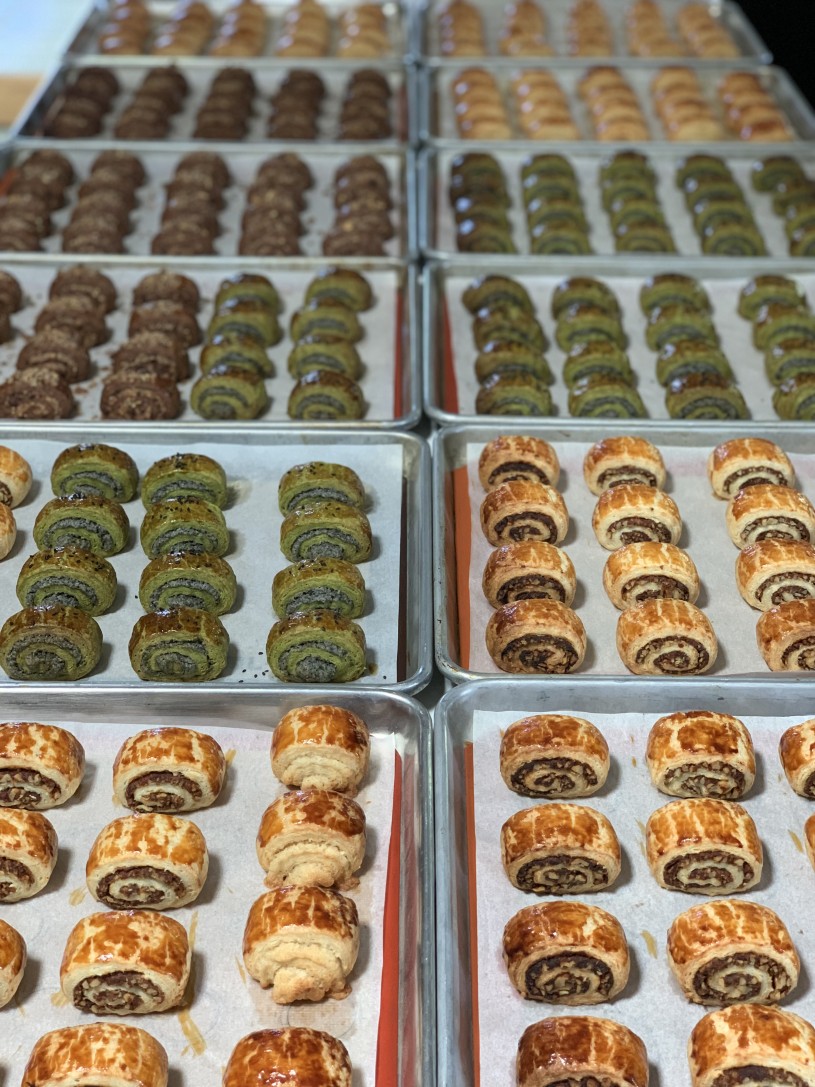
Growing up, I would eat the store bought gata, but I would also eat what my aunties, grandma’s and great aunts would bake. I found that the homemade version was always so much better– because it was fresh. They were not making 1000 of them at a time, they made maybe 40 or 80 pieces. Hands touched these small batches and you can feel the love and care a person had put into it because it was their recipe. And so, that is what I wanted to do– I wanted to make sure that the bread was still personal and it was made for you.
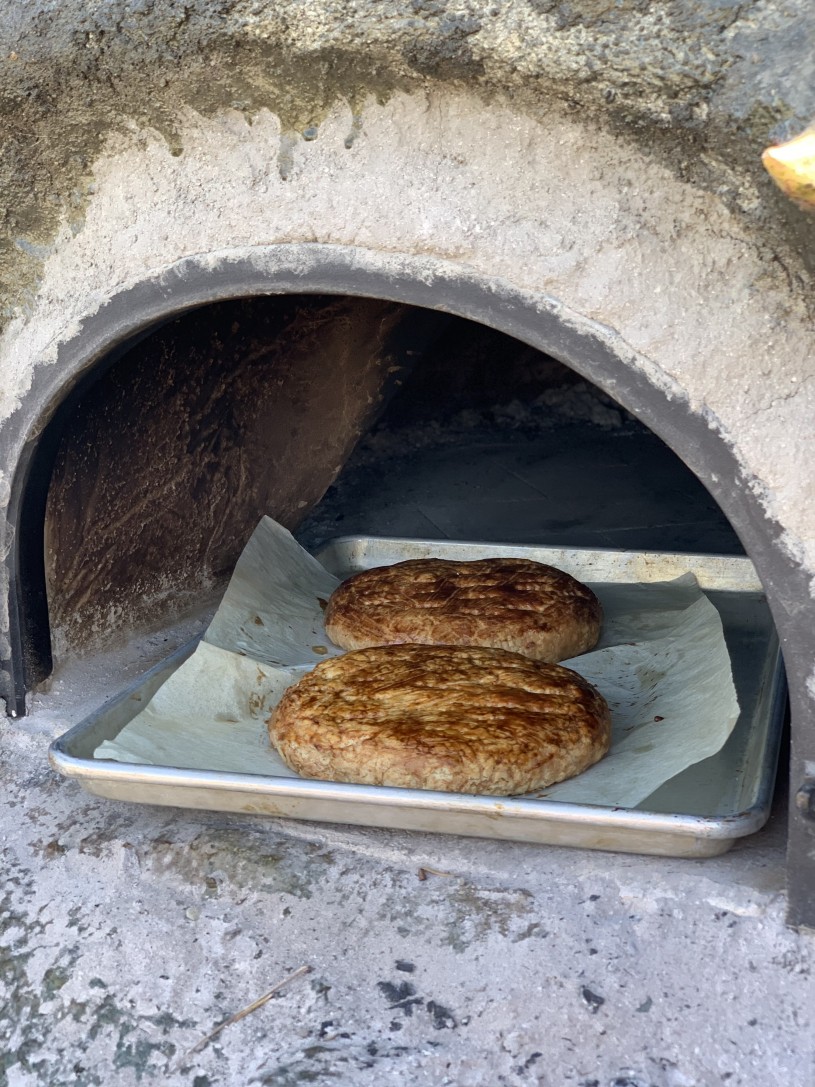
To sum it up, it makes me feel like an Armenian grandma. [Baking] makes me feel so connected to my history, culture, and family. Every time I make gata, it is a reminder that I get to be here and represent my culture– and that is such a privilege. To be able to serve people means a lot to me– I am very sentimental about it. When people eat my bread, it is like there is a transmutation of that feeling in the food and I love that it's there.
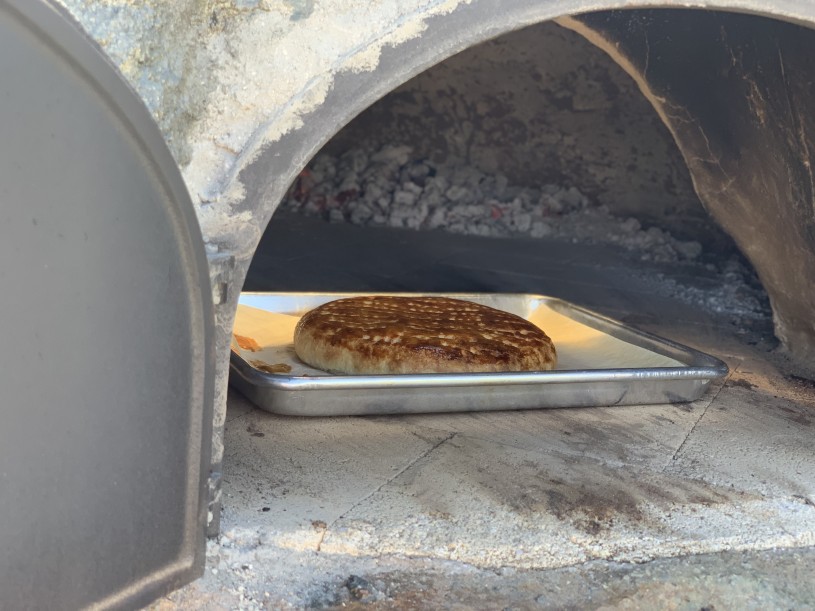
That's a great question. Traditionally, gata is a hearth bread that is baked in a wood fired oven. When I look up pictures of Armenian villages where they make gatas, there are a few regional differences in the way it's made.
Artsakh gata dough is a little bit flakier and the streusel filling is a little bit thicker. Gata’s from other regions are much larger in size, and the dough is a little bit fluffier– similar to brioche or concha dough. They fill these with either a thinner layer streusel or nuts, like walnuts and cinnamon. With the excess dough they’ll make beautiful designs on top.
The heartbeat of the community is watching these breads being baked in a hearth by these adorable old grannies with handkerchiefs tied on their heads– they're just the cutest thing. The hearth is where bread is baked, where food is made, and where they come together to cook. While I bake with modern equipment– making is my own way of saying, ”here's something for you– even if your grandma isn't around to make it for you, I'll do it. I'll make it for you.”
I make Artsakh style gata, which is where recent conflict was reignited and unfortunately we lost our land again. But we are still keeping our culture alive– the flame is still burning. It's painful and hard to see, but this [baking] is a small way of saying, “you can take the land, but you can’t take everything from us.”
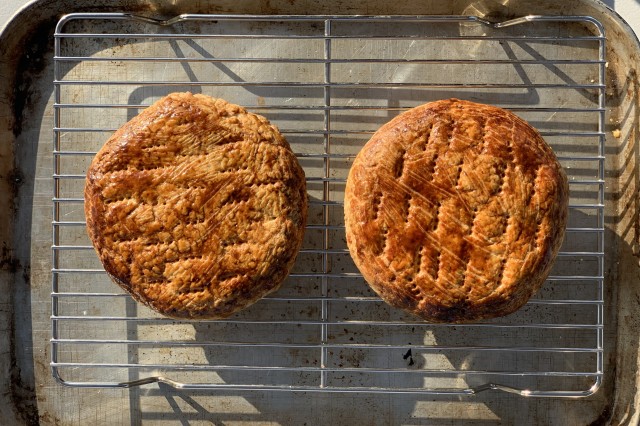
Kristine Jingozian
Rose + Rye's gata cools on a summer day in the park.
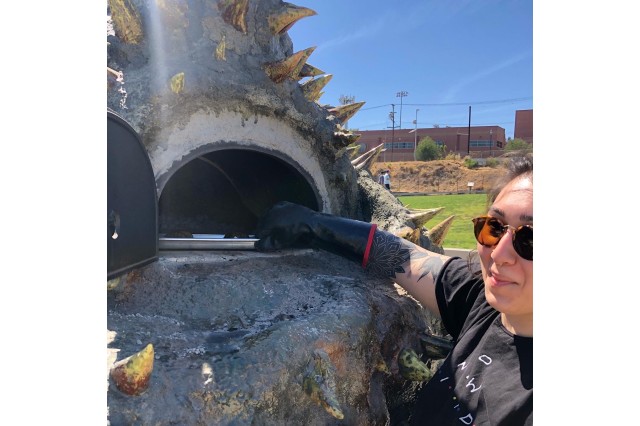
Kristine Jingozian
Jingozian watches over her gata at L.A. State Historic Parks wood-fire oven.
1 of 1
Rose + Rye's gata cools on a summer day in the park.
Kristine Jingozian
Jingozian watches over her gata at L.A. State Historic Parks wood-fire oven.
Kristine Jingozian
Rose + Rye is a pop-up bakery based in Granada Hills. Visit roseandrye.com to order tasty Armenian cakes and pastries.
Do you know an L.A. breadmaker who lovingly connects to your community? Do you want to share your favorite experience at Rose + Rye? Join the conversation by tagging @NHMLA with #KneadedLA, and your story could be featured next!